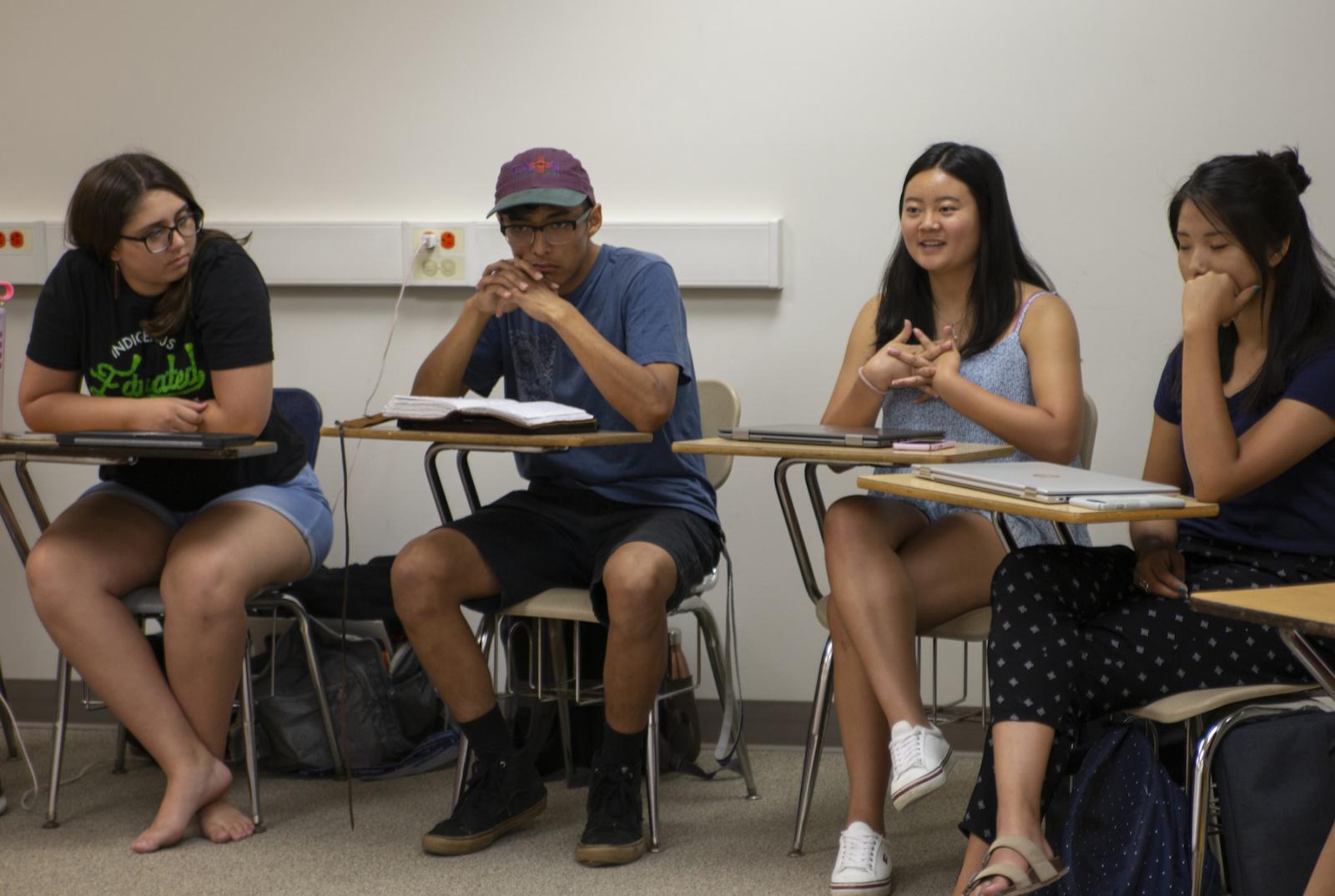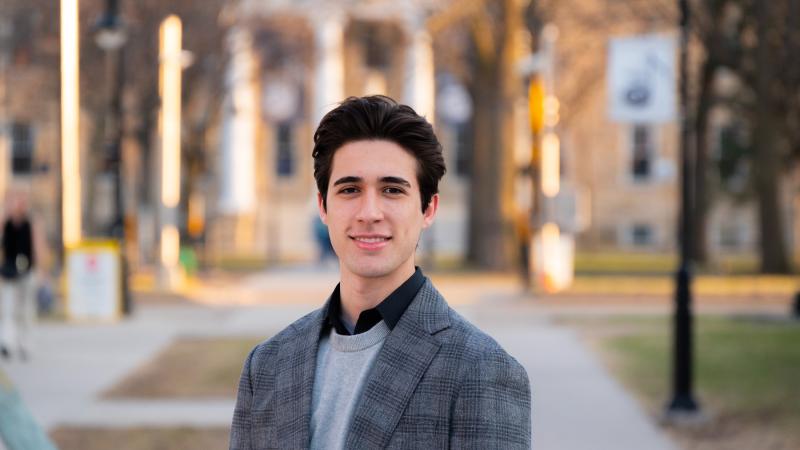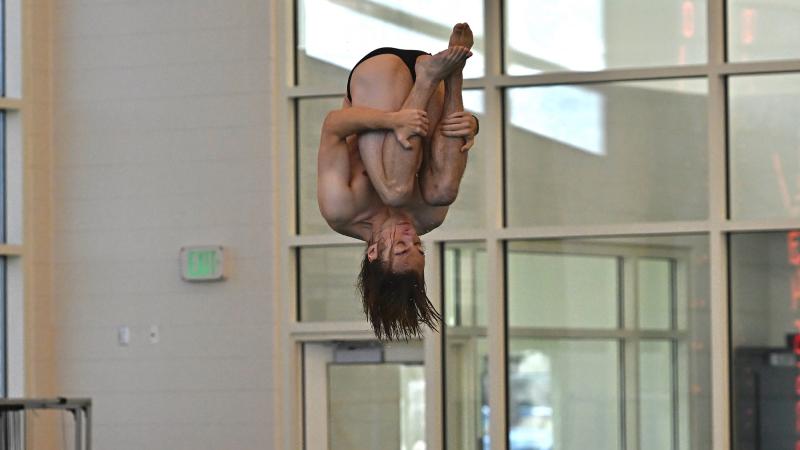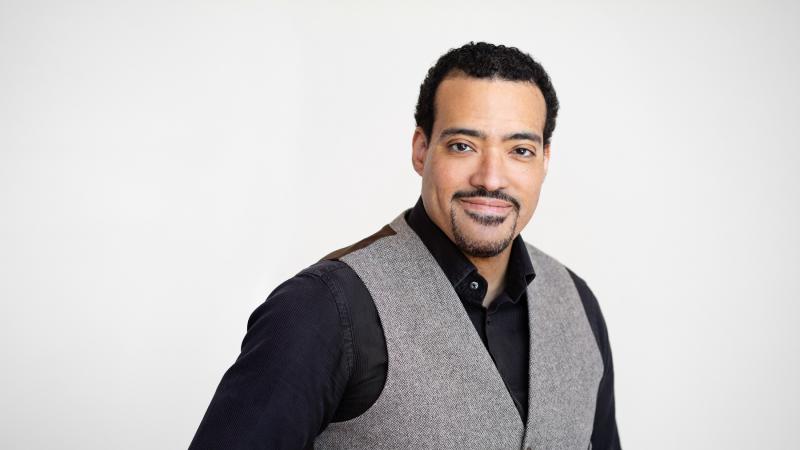Lawrence University is strengthening its partnership with College Horizons, a national nonprofit organization that advocates for college-bound Native American students.
A newly awarded three-year, $750,000 grant from the Andrew W. Mellon Foundation will extend the College Horizons Scholars Program through 2022.
College Horizons, the lead on the project, is a New Mexico-based college access organization that works with Native American students on college readiness. It aims to close the gap between Native and non-Native achievement in higher education. Only about one in 20 Native students will attend a four-year college or university, and once in college, only about a third of those students will earn a degree within six years, according to the organization.
For the past three years, Lawrence has hosted College Horizons’ pilot Scholars Program, a three-week summer academy for Native students in advance of their freshman year in college. Students with college destinations across the country gathered on the Lawrence campus to learn about transitioning to college and practice research and writing skills. It was funded by a $650,000 Mellon Foundation grant that expired at the end of 2019.
The new grant will allow the program to extend, expand and evolve. Instead of meeting only once for three weeks prior to their freshman year, the Native students will now be part of a Scholars Pathway that will continue through all four years of college. Beginning this summer, the participating students will meet annually for a one-week academy. The meet-ups prior to their freshman and sophomore years will be at Lawrence. Those before their junior and senior years will be at the University of Michigan.
“This model allows us to better meet student needs at each appropriate step in their academic journey and allows them to stay in frequent personal contact with their cohorts, which increases resilience,” Catherine G. Kodat, Lawrence’s provost and dean of faculty, said in the grant application.
The Scholars Program is one of three administered by College Horizons. Lawrence has also hosted Graduate Horizons, a four-day program offering graduate school admissions workshops. One of about 50 colleges that work with College Horizons, Lawrence forged its initial partnership shortly after the organization’s 1998 founding.
Kodat noted that among the lessons learned during the first three years of the program was that it was difficult for the participating students to dedicate three weeks of their summer to the program, and then the time lapse between their initial visit and the Graduate Horizons program was too great, exposing students to attrition risks.
The expanded and renamed Scholars Pathway Program offers more continuity, most notably consistent mentoring through the college years.
“College Horizons is excited for the three-year grant renewal with the Mellon Foundation and the continued partnership with Lawrence University,” said Mikaela Crank, director of the Scholars Program. “We are looking forward to our new cohorts of Scholars and implementing a more robust and contiguous four-year Scholars Pathway Program that will include annual in-person activities.
“Our goal is to better meet our students’ mentoring, academic, socio-emotional, pre-graduate advising and research needs. We are applying a holistic and Indigenous approach to support our Scholars success by helping them graduate from college and apply to graduate school.”
Lawrence will serve as the fiscal agent for the grant and will partner with the University of Michigan in hosting the program.
Last summer, 21 new high school graduates representing six Indigenous communities took part in the program at Lawrence.
“It is an honor and privilege to extend our fruitful partnership with College Horizons through this program,” President Mark Burstein said in a letter to the Mellon Foundation. “Our missions strongly align through increasing college access and attainment among historically underserved groups. The pilot program has raised our awareness of the particular challenges facing Native American students, and I trust the renewal will continue to increase our capacity to serve them better.”




